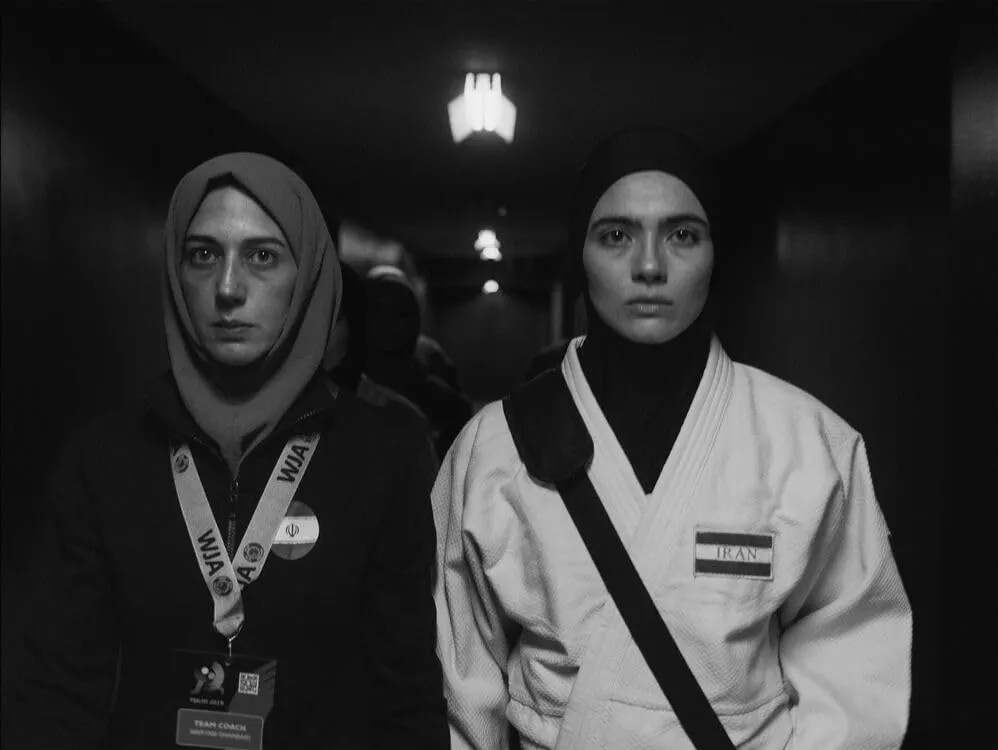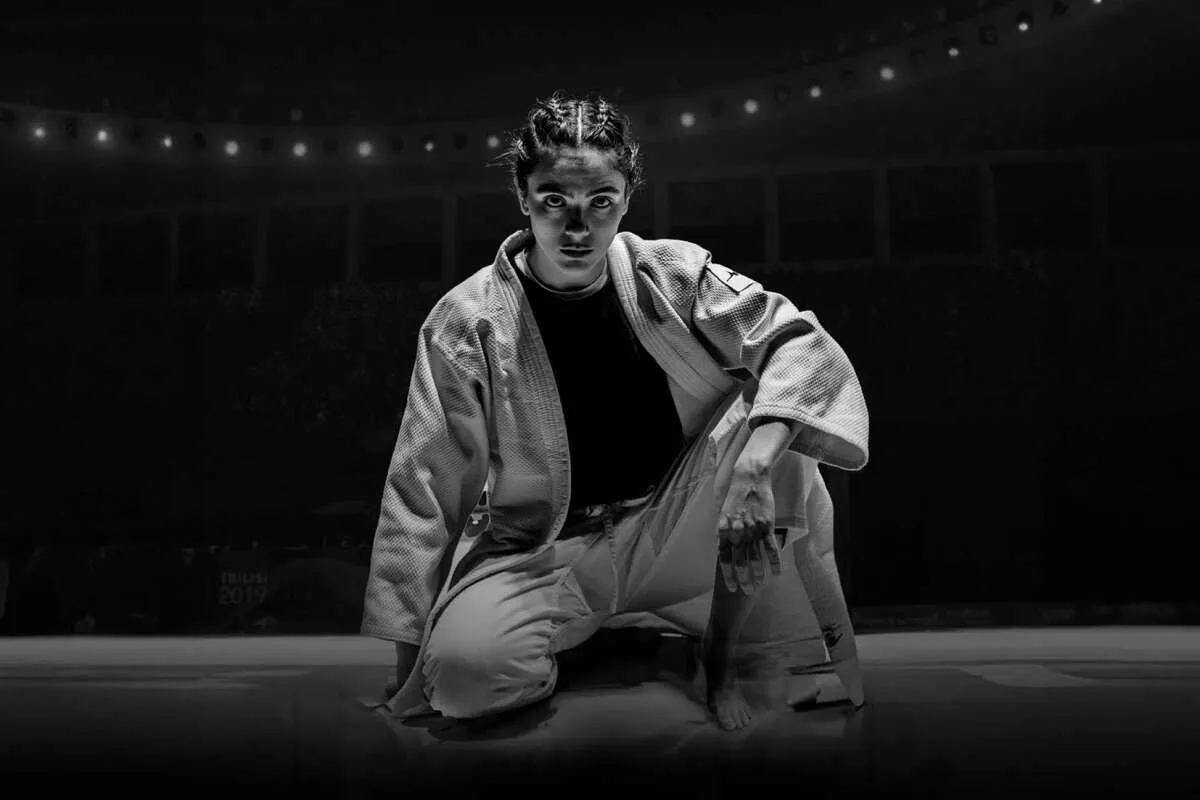In the high-stakes arena of the Judo World Championship in Tbilisi, Georgia, a sports drama unfolds with the familiar beats of an underdog story. Iranian judoka Leila is a dominant force on the mat, systematically advancing with a ferocity that puts her country’s first-ever gold medal within reach.
Supported by her coach, Maryam, herself a former competitor, Leila’s ambition seems pure and attainable. The film quickly pivots, however, when this narrative of personal achievement collides with a geopolitical mandate.
An order arrives from the Iranian government: Leila must feign an injury and withdraw. Her potential path to victory would require her to face an Israeli athlete, a contest forbidden by her state. This directive transforms the story from a competition of physical skill into a harrowing confrontation between an individual’s will and an authoritarian regime’s control.
The Shrinking Arena
The sports complex, once a stage for global competition, rapidly transforms into a psychological prison. The film masterfully uses its contained setting to build an atmosphere of escalating dread, where every hallway and locker room becomes a site of interrogation.
The pressure on Leila and Maryam intensifies through a chillingly realistic sequence of threats. What begins with terse phone calls to Maryam soon evolves into the menacing presence of plain-clothed government agents, dispatched to the tournament to enforce the state’s command.
The stakes are raised with explicit threats against their families back home, targeting Leila’s husband and Maryam’s father, demonstrating the regime’s far-reaching and cruel power. This pressure cooker environment forges an agonizing dynamic between the two women. Leila’s defiant response, a simple “Watch me,” is pitted against Maryam’s tormented position as she navigates her past traumas as an athlete while trying to protect her fiery protégé from forces she knows are ruthless.
Noir Aesthetics for a Modern Struggle
The film’s visual language is as stark and unyielding as its central conflict. The choice to shoot in crisp black and white is a deliberate nod to the classic American boxing noirs like The Set-Up, where shadowy forces manipulate a lone fighter.
Here, that visual grammar is brilliantly repurposed for a modern, female-centric political thriller. The monochrome palette strips the story of any distraction, focusing the viewer on the raw emotional and physical conflict. This aesthetic choice is amplified by kinetic camera work that plunges the viewer directly into the visceral chaos of the judo matches, making each throw and hold feel like a desperate act of survival.
Arienne Mandi delivers a commanding performance as Leila, her face a canvas of quiet determination that erupts into righteous fury. Zar Amir Ebrahimi is equally powerful as Maryam, embodying the deep internal fractures of a person caught between duty, fear, and a painful history. The synergy between the tense narrative and this potent visual style creates a work that is both a compelling sports film and a gripping thriller.
Victory Beyond the Podium
The film’s title, Tatami, refers to the judo mat, but its meaning expands to represent the multiple battlegrounds Leila must navigate: the physical contest, the geopolitical minefield, and the fight for her own soul. This is a story that delivers a pointed critique of the weaponization of sports, where athletes are reduced to pawns in ideological games.
It is a profound examination of female strength and rage resisting a patriarchal system that seeks to police their bodies and ambitions. The narrative courageously sidesteps the expected triumphant ending of a conventional sports film. Victory is redefined.
It is not found in the acquisition of a gold medal but in the monumental act of defiance itself. Leila’s final choice is a complex and potent statement on personal integrity, illustrating that the truest win lies in refusing to yield, even when the cost is immeasurably high.
Full Credits
Director(s): Guy Nattiv, Zar Amir Ebrahimi
Writers: Guy Nattiv, Elham Erfani
Producers: Adi Ezroni, Mandy Tagger Brockey, Guy Nattiv, Jaime Ray Newman
Executive Producers: Zar Amir Ebrahimi
Cast: Arienne Mandi, Zar Amir Ebrahimi, Jaime Ray Newman, Nadine Marshall, Lir Katz, Ash Goldeh, Valeriu Andriuță, Mehdi Bajestani, Sina Parvaneh, Elham Erfani
Director of Photography (Cinematographer): Todd Martin
Editor: Yuval Orr
Composer: Dascha Dauenhauer
The Review
Tatami
Tatami succeeds as both a nerve-shredding political thriller and a visceral sports drama. Anchored by two commanding lead performances and stark, beautiful cinematography, the film elevates a familiar story into a potent statement on personal integrity against state control. It is a taut, intelligent, and unforgettable film where the most important fight happens far from the mat.
PROS
- Tense direction that masterfully combines sports drama and political thriller elements.
- Powerful and nuanced lead performances by Arienne Mandi and Zar Amir Ebrahimi.
- Stunning black-and-white cinematography creates a stark and claustrophobic atmosphere.
- A timely and important story of individual defiance against oppression.
CONS
- The narrative can become somewhat repetitive in its middle act.
- Some late-game flashbacks feel less integrated into the main narrative.
- Geopolitical specifics are simplified to maintain focus on the central human conflict.

















































